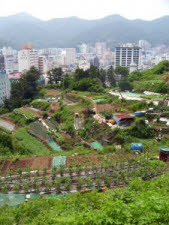A Biblical Perspective on Environmentalism: What World Food Shortage? (2)
 Reprinted with permission from As I See It, which is available free by writing to the editor at [email protected]. Read the series so far.
Reprinted with permission from As I See It, which is available free by writing to the editor at [email protected]. Read the series so far.
There is at present more than enough food production worldwide to provide complete nutrition for everyone, and yet in the midst of this there is much malnutrition, as well as spotty local famine. How can this be? Simply stated, in nearly all such cases, the former is the result of poor human dietary (and economic) choices, and the latter is the consequence of deliberate malevolent governmental policies, as I will now explain.
Malnutrition is nearly universally the result of poor human choices. As every doctor could testify, the alcoholic who buys wine instead of food will soon be seriously deficient in numerous vitamins and minerals, to say nothing of protein. Then there are those who characteristically consume large amounts of white flour, white sugar, high fructose corn syrup, highly-processed foods with minimal vitamins or fiber, foods with artificially-created trans-fats, plus assorted artificial flavorings, colorings, and preservatives. In turn, they eat low amounts of whole grains, vegetables and fruit. By these choices, they are depriving themselves of a whole spectrum of nutrients, and increase their risk of various cancers, diabetes, digestive tract problems, as well as obesity and all the health problems that causes. Of course the consumption of soft-drinks in anything beyond moderation is a major contributor to malnutrition—lots of calories but zero nutrition. It is almost literally true that America’s malnutrition problem would be solved if we simply substituted milk for pop in our diet.
 Reprinted with permission from
Reprinted with permission from 
Discussion